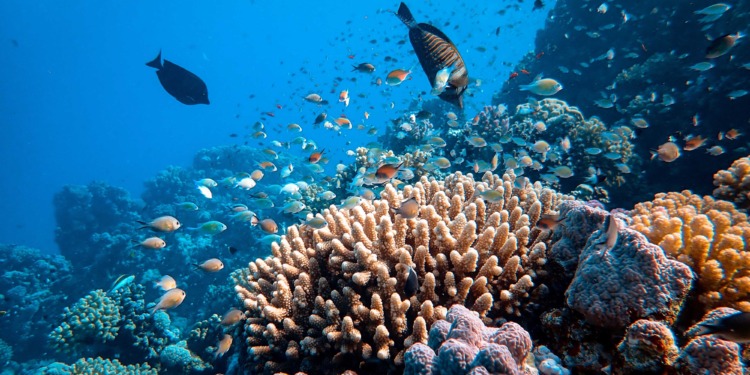In March this year, the United Nations (UN) agreed on a legally-binding treaty to protect marine life on high seas. On Monday, June 19, the treaty passed legal scrutiny and was adopted by UN members.
The high seas treaty contains 75 articles focusing on protecting marine ecosystems and biodiversity. This is a historic first in protecting our oceans.
“The ocean is the lifeblood of our planet, and today, you have pumped new life and hope to give the ocean a fighting chance,” the UN Secretary-General António Guterres told delegates in his remarks on the treaty on Monday.
On September 20, during the General Assembly’s annual meeting of world leaders, the new treaty will be opened for signatures. For it to be effective, it must be ratified by at least 60 countries.
What Does the UN High Seas Treaty Do?
The landmark treaty goes beyond national borders and adds to the Convention of the Law of Seas adopted in 1982.
The treaty includes provisions based on the polluter-pays principle, and with that, parties must assess the potential environmental impacts of ocean activities beyond their jurisdictions.
Moreover, it addresses the impact of global heating on ocean temperatures and climate patterns. In doing so, the treaty’s provisions acknowledge the rights and traditional knowledge of Indigenous peoples and local communities.
If the treaty is ratified, a new organisation will be created to oversee the preservation of ocean life. This body will be able to designate protected marine areas in international waters.
In addition, the treaty encourages nations to share information about ocean and marine discoveries and research with one another, as developing countries have demanded that the benefits of scientific discoveries in the world’s oceans should not be monopolised by wealthier nations.
Our ocean is under threat.
But the High Seas Treaty on protecting biological diversity of areas beyond national jurisdiction gives the ocean a fighting chance.
This historic achievement is an example of global threats being met by global action.https://t.co/3aS4Ys4c9H pic.twitter.com/tk2DTK4oAi
— António Guterres (@antonioguterres) June 19, 2023
The Group of 77, a UN coalition of 134 developing nations, have expressed their support for the treaty, which was in the making for almost 20 years, saying that June 19 was “an exceedingly important day for biodiversity.”
Russia, on the other hand, has stated that it “distances itself from the consensus on the text of the agreement prepared by the conference,” describing the treaty as “unacceptable.”
Why is the Treaty so Crucial?
The oceans are responsible for producing the majority of the oxygen that we breathe and absorbing carbon dioxide. This makes them crucial in reducing carbon emissions that contribute to global warming and climate change.
Related Articles: World Ocean Day 2023: Protecting Our Oceans for a Sustainable Future | Healthy Oceans: The Cornerstone for A Sustainable Future | High Seas Treaty Deep Dive: What’s the Plan to Protect the Ocean? | Floating ‘Plastic Smog’ Is Suffocating the Ocean, New Study Finds | Our Oceans: A Call to Protect our Planet’s Beating Blue Heart
Experts predict that by 2050, there will be more plastic than fish in the world’s oceans if no action is taken to address the problem. Plastic pollution causes hundreds of marine species to suffer from ingestion, suffocation, and entanglement yearly.
Moreover, less than 2% of the vast ocean areas are currently protected – the UN treaty is designed to safeguard approximately 50% of the earth’s surface.
The high seas treaty addresses issues such as plastic pollution and unsustainable fishing activities and aims to maintain the integrity of ocean ecosystems and preserve marine biological diversity.
“This landmark achievement bears witness to your collective commitment to the conservation and sustainable use of marine biological diversity in areas beyond national jurisdiction. Together, you laid the foundation for a better stewardship of our seas, ensuring their survival for generations to come,” said UN General Assembly President Csaba Kőrösi.
Undeniably the treaty is vital for achieving the UN agreement to preserve 30% of the world’s land and water in 2030 and SDG 14, which aims to “conserve and sustainably use the oceans, sea and marine resources for sustainable development.”
👏 We applaud governments at @UN for formally adopting the long-awaited #HighSeasTreaty today.
Now, we urge countries to ratify the Treaty ASAP: once the 60th country does so, the global ocean Agreement will become international law. https://t.co/KQrHJycHld #OceanTreatyNow pic.twitter.com/tRaNgopOF1
— High Seas Alliance (@HighSeasAllianc) June 19, 2023
Following the adoption of the treaty by UN members, Rebecca Hubbard, director of the High Seas Alliance representing over 50 non-governmental organisations and the International Union for the Conservation of Nature, said:
“Countries must now ratify it as quickly as possible to bring it into force so that we can protect our ocean, build our resilience to climate change and safeguard the lives and livelihoods of billions of people.”
Editor’s Note: The opinions expressed here by the authors are their own, not those of Impakter.com — In the Featured Photo: Fish Swarm and Corals Underwater. Featured Photo Credit: Francesco Ungaro.










